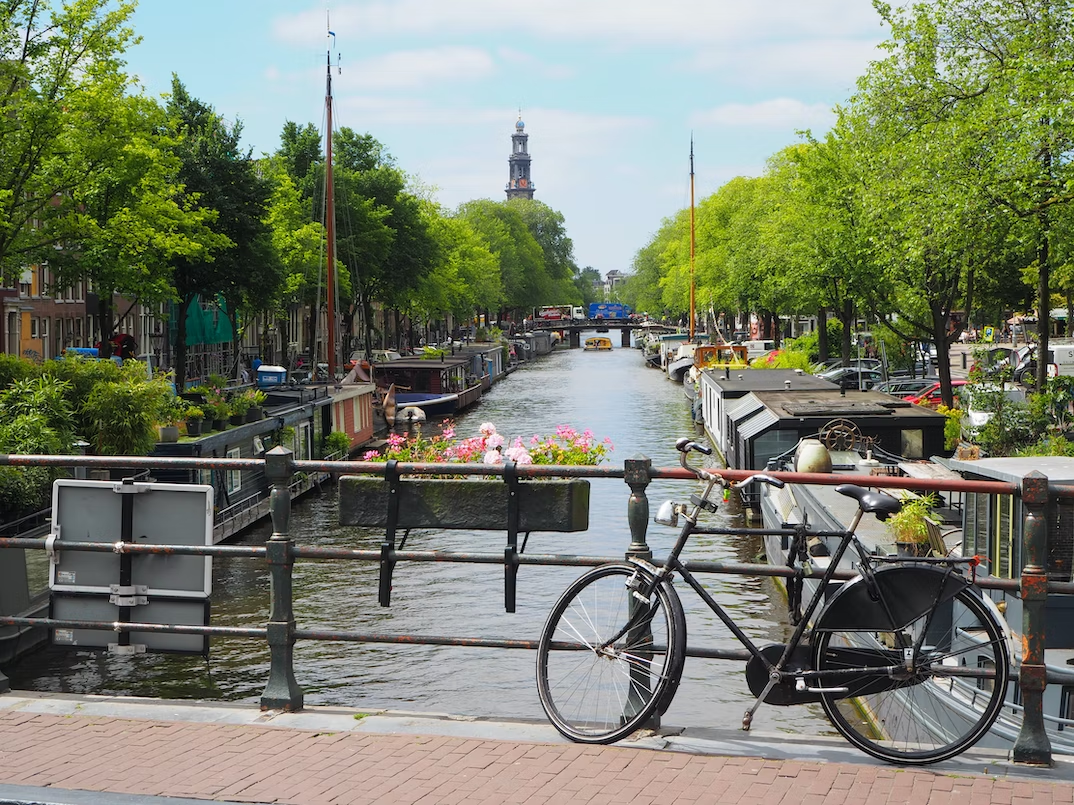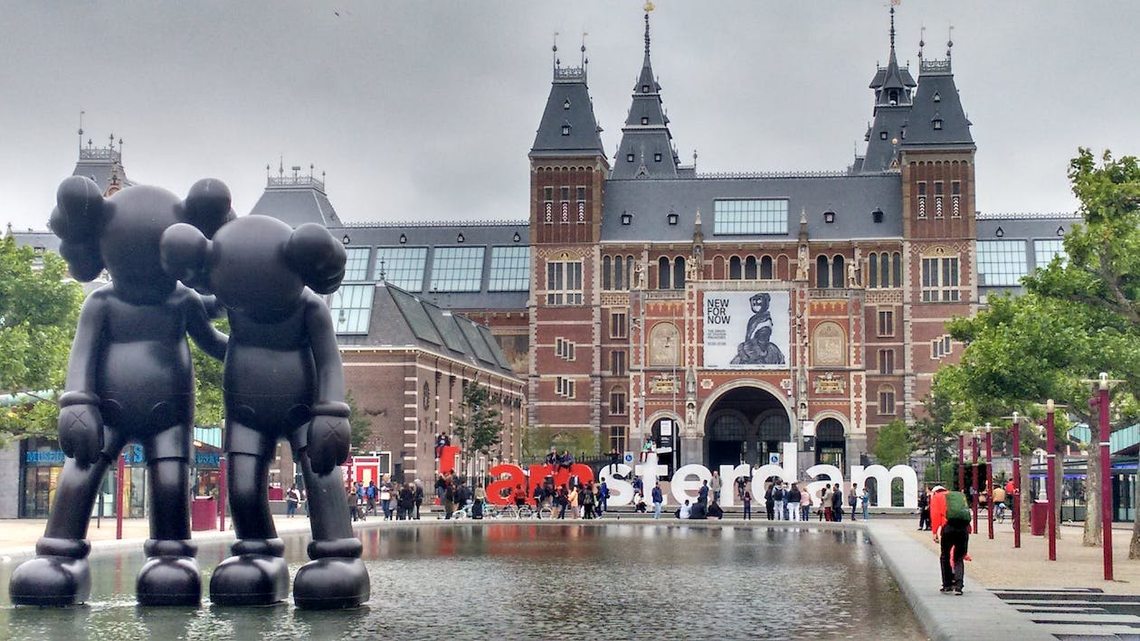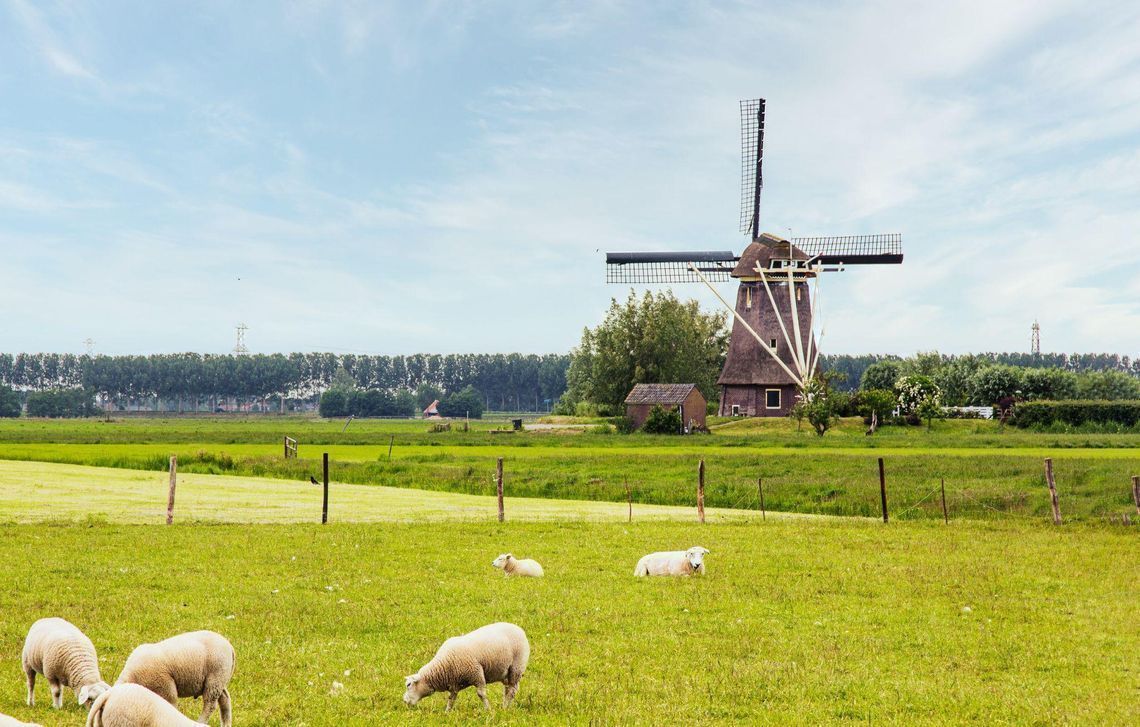
Apply to a foreign university with confidence
- Properly fulfilled documents
- Perfect motivation letter
- Support from a personal mentor
- Offers from several universities
Article score: 5 out of 5 (2 reviews)
The most important things about studying in the Netherlands: educational programs, academic levels, tuition fees and prospects
Free consultation





Education in the Netherlands is compulsory for children ages 5 to 16. Schools are divided into 3 types:
These differences are present at all levels of education: for example, there may be Catholic, Jewish, and Muslim elementary, secondary schools, and universities.
In addition to differences in types of schools, there are different streams of secondary education:
| Name | Meaning | Duration | Direction | Age |
|---|---|---|---|---|
| VMBO | Preparatory secondary vocational education | 4 years | Practical knowledge that leads to vocational training (MBO) | 16 years of |
| HAVO | Senior general secondary education | 5 years | Prepares students for higher vocational education in applied sciences (HBO) | 17 years |
| VWO | University preparatory education | 6 years | Prepares students for a bachelor's degree at research universities (WO) | 18 years |
In addition to public schools, there are private schools in the Netherlands. They are much smaller and most are based on a particular religion.
Education in the Netherlands attracts students from all over the world with a wide selection of English-language programs, advanced interdisciplinary areas, and rich traditions. The education system in the country is based on the Anglo-Saxon model, so studies in Dutch universities take the methodology of British and American universities. Finally, studying in the Netherlands is comfortable and interesting, as the country has a unique atmosphere of free-thinking, innovation, and creativity.
Reasons to attend the pre-university Foundation course:
Usually, Foundation programs last for 1 year. Successful graduates are automatically accepted to the university where the Foundation program was conducted, alternatively, students can try to enter other educational institutions. Via Foundation you can go to:
The information about the exact universities the applicant can enter through Foundation should be requested from the administration of the program itself.
Typically, preparatory courses include modules in specialized subjects (for example, business, economics and social sciences, engineering) and advanced language learning. During English/Dutch courses, in addition to language, the general academic program is taught. For example, scientific writing and reading, presentation, note-taking, and essay writing, the discussions in a foreign language. Some programs attach a mentor to students who provide support in bureaucratic procedures. In addition to classes, Foundation programs offer career guidance sessions and cultural events are sometimes organized.
For admission you need:
During the course, students are evaluated by writing and homework, presentations, and exams. At the end of the Foundation, students are not only ready to study at the university and adapted to the Dutch education system but are also familiar with the country and local culture.
In the Netherlands, there are virtually no typical colleges that may be familiar to a student from outside the Netherlands. Higher professional education is considered to be associate/bachelor’s degrees at universities of applied sciences. And the remaining qualification courses or short programs are designed for unemployed or working adults. There are also MBO programs (middelbaar beroepsonderwijs, literally "middle-level applied education") oriented towards vocational training. Students are usually teens and adults from 16 to 35 years old, but there are no age restrictions for courses. Programs last 1-4 years. However, to enter the MBO, you must know the Dutch language, at least at the A1 level, and have a residence permit in the country. There are no English-language colleges in the Netherlands.
There are 4 program levels:
At all MBO levels, 2 curricula are offered:
After the Level 4 MBO, students can apply for an associate/bachelor's program at a university of applied sciences or start working. Professional programs are implemented by 43 regional vocational schools, 12 specialized trade colleges (vakscholen), 11 agricultural training centers (agrarische opleidingscentra), and one school for people with disabilities.

A bachelor's degree in the Netherlands can be obtained at a research university or at a university of applied sciences.
Universities of applied sciences teach many specialties, for example, healthcare, visual arts, agriculture, programming, design, law. Such universities have great academic freedom, as they independently determine the content and structure of the curriculum. For example, universities have introduced dual programs in which students study and then work.
Studying at applied universities is aimed at preparing students for work. Programs provide students with practical skills and competencies of specific relevant specialties. This is achieved through compulsory internships and project activities. As a rule, the study lasts 4 years and consists of 240 ECTS credits. After graduation, graduates are employed or enter a master’s program. There are also 3-year programs, but to enter them immediately after grade 11 (if that is a complete secondary education in your country), you need to go through Foundation.
In general, universities of applied sciences accept applicants with 11 years of school, but the requirements of each university should be checked. For example, at the Amsterdam University of Applied Sciences, you need to finish the year at the university of your country and only then you can continue your education in the Netherlands.
Research universities offer a wide range of undergraduate programs in economics, behavioral and social sciences, language and culture, engineering/technology, natural sciences, law, and medical sciences. Interdisciplinary humanities programs also exist.
The goal of science-based bachelor’s programs is to prepare students for further education. To this end, emphasis in training is placed on academic and scientific skills. Subjects in the curriculum can be general and specialized. Almost all programs have a mandatory research methodology course and include writing a final thesis. The duration of study is 3 years, the number of credits — 180. After receiving a bachelor's degree, students enter a master’s program or start working in their specialty.
Masters programs in universities in the Netherlands are highly specialized in specific disciplines. Like bachelor’s programs, graduate programs are offered in research universities and universities of applied sciences.
Master’s at universities of applied sciences. The main goal of applied programs is to increase the knowledge and professional competence of students. Much attention is paid to improving analytical skills and preparing students for leadership positions in the specialty. Some programs are designed for full-time study, but most are part-time, as students combine study with work. This allows students to apply theory to practice in real-time and discuss life cases in the classroom with teachers and fellow students. Moreover, in many programs, research should be based on actual experience gained at work. Master's programs usually last from 1 to 4 years (60-240 credits).
Master’s at research universities. The main goal of science-oriented master's programs is to provide knowledge and improve the analytical skills of students. This is done so that in future students can conduct independent research.
The following master's programs exist:
Most research university programs last 1 year (60 ECTS). Specialties at technical universities require 2 years. Research Master's studies, teacher training, and programs in technical fields (engineering, mathematics, natural sciences, and agriculture) last 2 years (120 ECTS). The longest are three-year programs in the field of medical sciences (180 ECTS).

Doctoral programs in the Netherlands are offered only by research universities and are held at graduate schools (within individual universities) or research schools (created by a consortium of several institutes for ongoing projects and research). PhD research focuses on a specific topic and is defended as a dissertation. Doctoral studies usually last for 4 years. PhD programs in the Netherlands are not typical and are divided into:
It is worth highlighting the topic of PhD funding in the country. As a rule, in the Netherlands there are 3 ways to finance a doctoral degree:
Organizations offering scholarships and grants can be found on the website of the European Researcher Support and at Grantfinder.
The remarkable thing in Dutch doctoral studies is the dissertation defence ceremony. It takes place in a formal setting, participants put on official academic clothes, and each has his own form of treatment. The candidate is accompanied by 2 people (paranimfen). In the past, they acted as bodyguards, if the situation was heating up between the academics. Nowadays, they serve as moral and administrative support. The dissertation is defended in front of the Doctoral Committee of 3 or more scientists (an odd number is required). Candidates may additionally be questioned by other invited academics.
In order to become a professor at a university in the Netherlands, you must have a PhD. Without it, you can only rely on assistant positions with a minimum salary. In addition to the degree, the applicant must obtain a BKO certificate (basic teaching qualification) following the results of a special exam. Additional requirements are the presence of cited publications in scientific journals and experience in participating in scientific projects.
In research universities, the selection of applicants for positions is strict, since here a successful candidate becomes both a teacher and a research associate. The teaching workload in universities is high. This is especially true for universitair docenten (teachers/associate professors) in the field of social sciences and humanities, who spend 70% of their time teaching and only 30% doing research. The remaining professors devote approximately 40% of their time to teaching and 60% to research. Thus, the educational process does not lag behind scientific progress.
Since the Netherlands makes a special bet on the internationality of the educational system, teachers should be fluent in English. Almost half of the academic staff of universities is foreign teachers.
An academic post is considered prestigious in the country, so a decent salary is also in place: from 3,390 USD to 9,040 USD per month.
The following permanent positions exist in universities:
| Academic rank | International equivalent | Typical positions |
| Hoogleraar 1 and 2 | Full professor | Dean of the faculty, head or academic advisor of the department / institute |
| Universitair hoofddocent 1 and 2 | Associate professor (US), senior lecturer (UK), reader (UK) | Coordinator of diploma programs, chairman of second-level committees (for example, pedagogical) |
| Universitair docent 1 and 2 | Assistant professor (US), university lecturer (UK) | Chairman or member of second-level committees |
Here you can find information about working conditions and wages. It is worth noting that in the Netherlands there is a single salary system.
Ranks of professors at universities in the Netherlands:
| Rank | International equivalent | Description |
| Job Hoogleraar | Full professor | Standard Professor |
| Buitengewoon hoogleraar | Visiting professor by special appointment | For special research or teaching (part-time) |
Bijzonder hoogleraar | Current position (temporary, often part-time) | Sometimes assigned to the institute researcher, who has an honorary title at a university |
| Universiteits- hoogleraar | University professor | Temporary dismissal from teaching for research |
The job classification system (UFO) for Dutch universities is available on the VSNU website for more information on professors' responsibilities.
EU/EEA/Swiss nationals are allowed to work without any restrictions or additional requirements.
Non-EU citizens in turn can work while studying, but only with a special work permit (TWV). Working conditions for them are as follows:
Additionally, insurance and, in some cases, a medical certificate are needed.
The peculiarity is that in the Netherlands the application for a work permit is submitted by the employer. He must do this at least 5 weeks before the employee begins their work. The application is free, but due to paperwork, many employers simply do not want to hire foreigners. Moreover, most jobs require fluency in the Dutch language, which hinders the employment of English-speaking students.
In this regard, the practice of illegal work is widespread in the country, when students get a job without official registration. In this case, the state does not guarantee the protection of the rights of such illegal workers. So, the employer who did not pay the salary will remain completely unpunished.
If the student has an internship, a work permit is not needed. Instead, the university and the employer must sign an internship agreement.
Foreigners are also allowed to do business while studying. To work on a self-employed basis, there are no restrictions on working hours and you do not need to get permission.

EU nationals do not need a work permit to stay and work in the Netherlands after study. For non-EU graduates of Dutch universities, the government has introduced the Orientation Year program. It allows young professionals to stay in the country and look for work for 1 year after graduation. You can apply for the program, find out the nuances, and detailed information on the official website of the Immigration Service (IND).
Permission is issued after each completed training program or after each completed scientific research. That is, if you studied or conducted research twice, you have the right to apply for Orientation Year 2 times for each type of activity.
An application can be submitted within 3 years after graduation. This is convenient, as a student can start working at home or in another country and only then return to the Netherlands. Conditions for the applicant (any of three):
The list is not full; here you can find other conditions.
The cost of the procedure is 197 USD. If you are currently residing in the Netherlands, an application is submitted online. For those who are abroad, an application is submitted in writing. IND makes a decision within 90 days. Here you can read the FAQ from the immigration office.
On getting employed and after the expiration of the residence permit, the immigrant submits documents for a work permit. The place of work must comply with the requirements of the Immigration Service. The approved companies are listed on the official website.
There are several types of work permits: Highly skilled migrant, EU Blue Card, Researcher within the meaning of Directive, Spiritual counselor, Employee in specific positions in art and culture, Employee of an international non-profit organization, and others. Detailed information can be found on the website of the immigration service.
Students have a chance to find work while still in training: for this, you need to contact the university’s career center, where the applicant will be given recommendations on further employment. Often, partner companies of universities are looking for personnel among graduates, so the most successful ones can be directly hired.
The unemployment rate in the Netherlands as of February 2020 is only 2.9%[7]. The country is among the top 20 richest in the world, and the main sectors are agriculture and food processing, creative industries (interior design, games, fashion, and architecture), chemicals, energy, high-tech systems and materials, gardening, science and healthcare, logistics and water management[8]. The most sought-after specialists are engineers, ICT and healthcare workers, and innovators in creative industries[9].
Dutch diplomas comply with the requirements of the Bologna Process and are valid in any EU country. Since the strengths of Dutch education are high technology, urban studies, and design, the chances of finding work in these areas in Europe are quite high. A diploma from a prestigious Dutch university will also open many doors to employment in non-EU countries.

60+ countries
we work with
$1,000,000 saved
by students through scholarships
6,400 offers
our students got